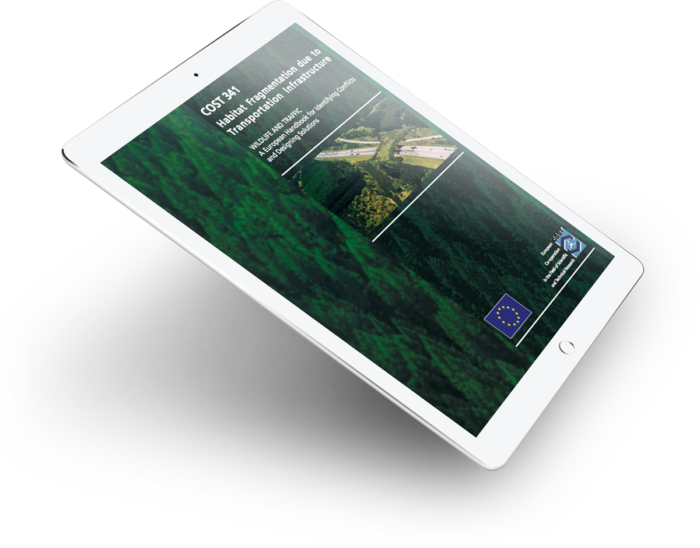Initiated in Oktober 2023, the SR4W working group is dedicated to:
1. Advancing evidence-based knowledge of railway-wildlife conflicts.
2. Exploring innovative approaches to prevent wildlife-train collisions and support wildlife mobility.
3. Supporting rail organizations in developing routines and strategies to implement these solutions.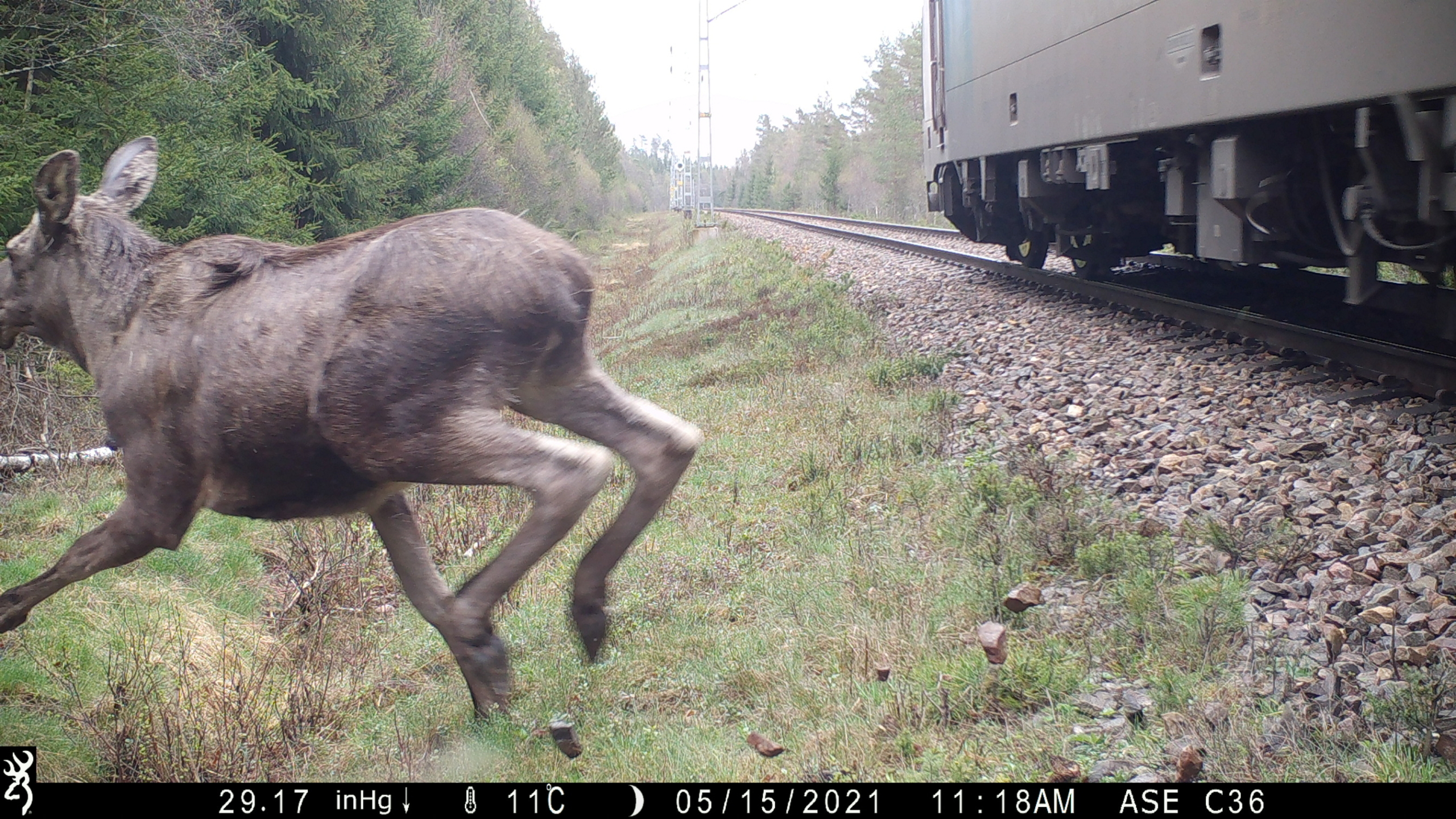 Moose in flight from train in Sweden (Olsson & Seiler)
Moose in flight from train in Sweden (Olsson & Seiler)
Background
Wildlife-train collisions are on the rise globally, posing serious challenges for rail operations, wildlife conservation, and effective management. This issue, long overlooked, is gaining increasing attention as rail networks expand, digitize, and electrify. In most countries, rail infrastructure is not designed to prevent accidents with large wildlife, and trains themselves are not equipped to avoid or withstand such impacts.
The true costs of train-wildlife collisions are often underestimated and poorly documented. They include repairs to trains, service disruptions, traffic delays, railway and train cleaning, management of animal carcasses and injured wildlife, and the administrative burden of reporting incidents. Swedish data indicate that railway accidents involving ungulates may be more frequent per kilometer than comparable road incidents.
Collisions are part of a broader challenge: habitat fragmentation. As infrastructure networks grow denser, ecological connectivity is increasingly compromised, disrupting essential processes like the movement and dispersal of large herbivores and carnivores. Common mitigation, such as exclusion fencing, can further limit wildlife movement. Effective solutions must therefore combine fencing with wildlife bridges or underpasses—measures that are costly and generally justifiable only in high-risk areas.
With the strategic importance of railways for a sustainable transport future, developing cost-effective measures to prevent wildlife collisions while maintaining ecological connectivity is more critical than ever
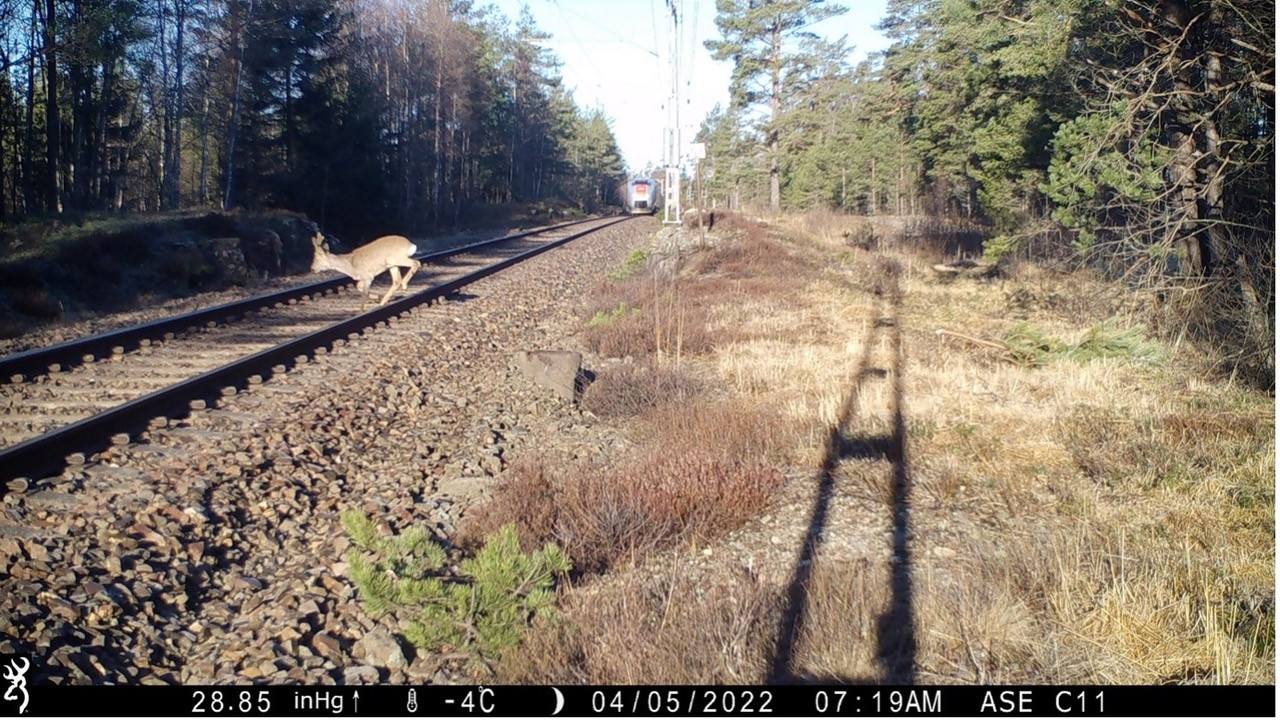 Moose crossing a railway as train is approaching. Photo: Camera Trap in Project Viltsäker Järnväg, © SLU & Enviroplanning
Moose crossing a railway as train is approaching. Photo: Camera Trap in Project Viltsäker Järnväg, © SLU & Enviroplanning
Collaboration
True to the IENE tradition, the SR4W working group brings together diverse perspectives: researchers, public authorities, infrastructure managers, train operators, and entrepreneurs. We collaborate closely with the International Union of Railways (UIC) and IENE working groups such as the Working Group on Animal Detection and Driver Warning Systems (ADDWS), with international research projects like SYMBIOSIS (EURAIL) and the Forum of European National Highway Research Laboratories (FEHRL).
Activities
• Bi-monthly online meetings for knowledge exchange and networking.
• International survey on railway-wildlife conflicts, assessing the scope and magnitude of animal-train collisions, data availability, and best practices in mitigation.
• Harmonizing research on mitigation approaches, including the use of acoustic signals to warn or deter wildlife as trains approach.
• Developing standardized reporting routines for collisions and mitigation measures to enable better comparison and learning.
• Providing updated guidelines for the IENE handbook on biodiversity and infrastructure.
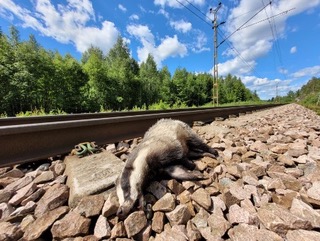 Train-killed badger. Photo: Caroline Berndt
Train-killed badger. Photo: Caroline Berndt
Upcoming Events & Opportunities
• Join our bi-monthly meetings featuring international experts, recent research findings, and interactive discussions.
• Participate in the international survey on animal-train collisions and mitigation practices.
• Contribute to joint sessions at upcoming international conferences, including IENE (https://iene.info/events/ ) and UIC (https://uic.org/sustainability/sustainable-land-use/) events.
• Stay tuned for announcements of upcoming workshops and collaborative opportunities!
Join Us
To learn more about the SR4W working group or to get involved, please contact:
Andreas Seiler – seiler@wildlifeandtraffic.se
or the IENE Secretariat – info@iene.info
The SR4W is open to all IENE members and non-members. Yet we ask you to consider joining the IENE network and becoming part of the dynamic international community at the forefront of infrastructure and ecology.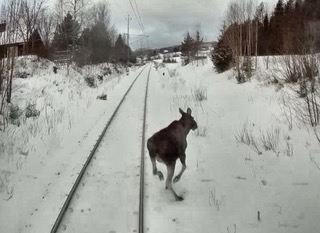 Moose barely escaping an approaching train in Sweden (Photo: Seiler)
Moose barely escaping an approaching train in Sweden (Photo: Seiler)
Participants

